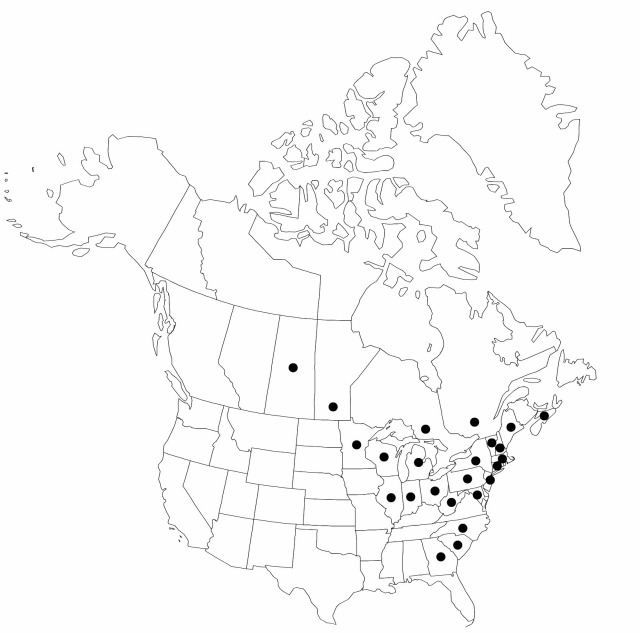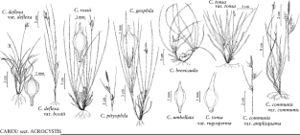familyCyperaceae
genusCarex
sectionCarex sect. Acrocystis
speciesCarex tonsa
varietyCarex tonsa var. rugosperma
Carex tonsa var. rugosperma
Novon 6: 118. 1996.
Common names: Carex à fruits rugueux
Basionym: Carex rugosperma Mackenzie Bull. Torrey Bot. Club 42: 621. 1915
Revision as of 20:04, 16 December 2019 by FNA>Volume Importer
Leaf blades bright green, much longer than culms, herbaceous, scabrous to papillose adaxially. Perigynia pubescent on beak and body.
Phenology: Fruiting mid Apr–late Jun.
Habitat: Open, dry, acidic, sandy and rocky meadows, roadsides, dunes, ridges, heathlands, savannas, pine, oak, and poplar woodland edges
Elevation: 50–1000 m
Distribution

Man., N.S., Ont., Que., Sask., Conn., Ga., Ill., Ind., Maine, Md., Mass., Mich., Minn., N.H., N.J., N.Y., N.C., Ohio, Pa., S.C., Vt., W.Va., Wis.
Discussion
Carex tonsa var. rugosperma has long been known as C. rugosperma but C. tonsa has priority. The two varieties of C. tonsa may occur together; intermediates are found occasionally. Plants with virtually glabrous perigynia may have long, scabrous leaves. Plants with a pubescent perigynia apparently never have coriaceous, short, and nearly smooth leaves.
Selected References
None.
Lower Taxa
None.
